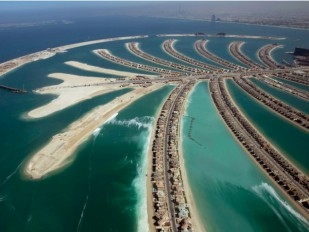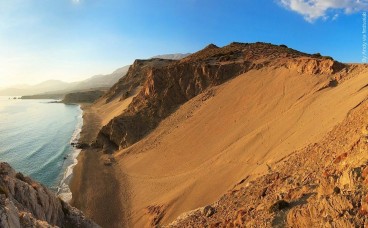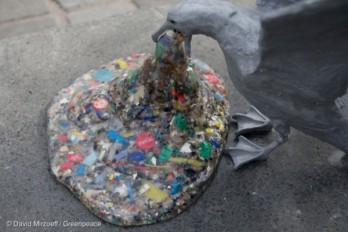UN warns on the effects of sand dredging to the ocean floor and marine life

The UN Environment Programme (UNEP) warned on Tuesday about the impact that sand dredging has on the ocean floor and marine life.
Furthermore, UNEP’s Centre for Analytics, GRID-Geneva, has developed a new data platform, called Marine Sand Watch, which aims at tracking and monitoring dredging activities in marine environments around the world.
The platform revealed that four to eight billion tons of sand are extracted annually from the ocean floor. Pascal Peduzzi, head of GRID-Geneva, characteristically stated how this six-billion-ton yearly average is the equivalent of one million dump tracks per day.
Sand is the second most used natural resource on the planet, and it is estimated by the platform that about fifty billion tons of it, along with gravel, are used by humans each year.
However, the volume of dredging stated above is reaching the world’s replenishment capacity of ten to sixteen billion tons per year.
It is worth noting that data analyzed by the platform for the years between 2012-2019 also show that volumes of materials dredged are increasing.
Peduzzi said that the scale of environmental impact caused by dredging is also increasing and is starting to have alarming effects on the environment. He also said that the analyzed data show an urgent need for better marine sand resources management.
Finally, regulatory frameworks and practices vary widely across the world, with some countries having no legislation at all, while others have banned marine sand exports altogether within the last twenty years.
Sources: www.bbc.com, news.un.org, www.unep.org, www.aljazeera.com
Want to read more like this story?

Study quantifies human infrastructure on oceans for the first time
Aug, 31, 2020 | NewsScientists from Australia and the United Kingdom managed to quantify the manmade constructions that...

New study shows that plastic waste can replace sand in concrete
Sep, 21, 2018 | NewsAccording to researchers from Bath University, waste plastic can replace some of the sand used in co...

How much sand do we have left? New transport equations for carbonate deposits
Jun, 24, 2020 | NewsA new study provides insights and suggests new models on carbonate sand deposits movements. The stu...

A Chinese tidal energy project qualifies as ‘world record’
Jun, 29, 2018 | NewsThe country’s first tidal energy demo project completed one year of operation The country&r...

The plastic pollution problem in charts
Dec, 11, 2017 | NewsThe total volume of all plastic ever produced has been calculated at 8.3 bn tonnes (the equival...

Processed spent coffee grounds can enhance concrete strength
Nov, 20, 2023 | NewsResearchers at the Royal Melbourne Institute of Technology (RMIT) have recently published a paper w...

Dorchester county officials question long-term Conowingo Dam plan
Dec, 11, 2025 | NewsDorchester County’s leadership met with the Maryland Department of the Environment in Cambridge, Ma...

Plankton Eats Plastic...
Jul, 10, 2015 | NewsPlastics that are in the seas have heavy impact on the environment and marine ecosystems, as they go...

A sculpture outside London’s National Theater highlights the issue of plastic pollution in our oceans
Apr, 26, 2017 | NewsThe work of the renowned marine sculptor Jason deCaires Taylor is called ‘Plasticide’...
Trending

Taipei 101’s impressive tuned mass damper

Characteristics of Load Bearing Masonry Construction

China Completes World’s Longest Expressway Tunnel, Redefining Connectivity

The Line at Neom faces feasibility reassessment while construction continues




